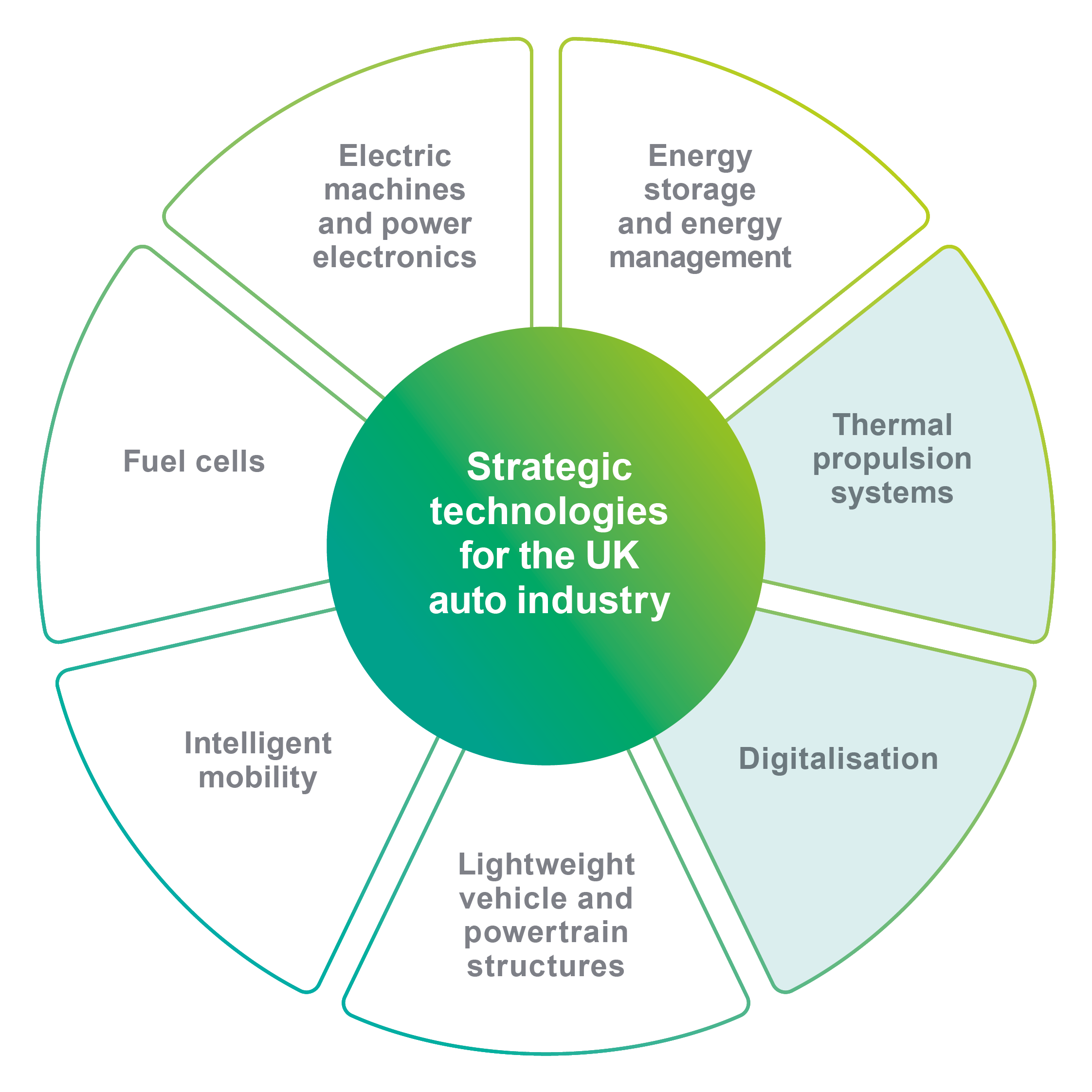PHINIA DELPHI UK – Project Cavendish
Developing zero CO2 hydrogen combustion systems for heavy-duty commercial transport
Phinea and partners will develop novel combustion components, software and controls to allow the rapid redevelopment of existing heavy-duty truck engines to work on hydrogen fuel, creating a new generation of zero CO2 vehicles and unlocking significant decarbonisation for high-range and high-power commercial applications such as long-haul trucks.
Decarbonising heavy-duty vehicles presents specific challenges due to demands on powertrain cost, performance, operational availability, design life and reliability. To meet this challenge, Phinea and its partners are pursuing a novel concept based on the optimisation of existing heavy-duty diesel platforms to accommodate hydrogen as a fuel source, underpinned by novel fuel injection systems and supporting turbocharger technology.

Accelerating the transition to net-zero carbon emission mobility
Project highlights
- Targeting the conversion rather than the replacement of current heavy-duty engine platform designs, negating the need for significant investment in supply chain manufacturing and assembly infrastructure
- Developing an H2-ICE concept that converts existing heavy-duty diesel-powered platforms to hydrogen
- Developing and testing two parallel systems to deliver a fast-to-market solution, ready to hit the roads this decade, and an upgrade path to continue optimising fuel consumption for decades to come
- Improving performance, durability and reliability, while reducing NOx/N2O emissions performance and upfront costs
- Total project value £9.8 million, with £4.9 million funded through the APC.
Project consortium
- PHINIA DELPHI UK LIMITED, Gloucestershire
- Cambustion Limited, Cambridge
- BorgWarner Limited, West Yorkshire
- Hartridge Limited, Gloucestershire
- Mahle Powertrain Limited, Northampton